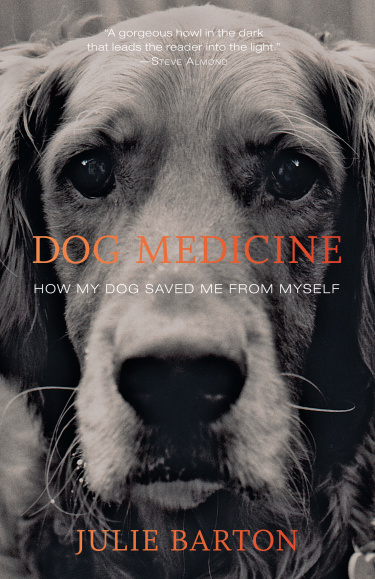You’ve heard the platitudes …
Honesty is the best policy.
Tell the truth and shame the devil.
An honest answer is like a kiss on the lips.
They make it sound simple, don’t they? As if telling the truth was so straightforward. But for those of us who are accustomed to covering up, getting real is … complicated.
When you start speaking up after years of silence, you’ll discover the land mines in your psyche. You probably won’t even know they’re there until you step on one. The anger and sadness that you stuffed down years ago will rise to the surface. And if you’re anything like me, you’ll hate it.
When you get a sense for how much emotion has been buried within you, you will be tempted to turn away from it all. You’ll judge and shame yourself for the war zone within.
But living a life of love necessitates uncovering and disabling those land mines.
Scared to Get Mad
A few weeks ago, I wrote in my journal, “I’m scared to be the real me and express how I think and feel, because I’m so afraid that the real me is a colossal b%^&*.”
If you think about, this fear makes a lot of sense. Why? Because exploding-doormat or “caged” anger is vicious. And if you don’t address it, it will blow up your relationships, your body, your very self.
As Anna Kunnecke wrote in this post, “… Imagine taking any healthy loving human being and locking them up in a cage for 20 or 50 years. Think how contorted she would get. How desperate. How filthy and furious and twisted.
This is what happens when [you] lock away [your] anger …. The problem isn’t that [you] lost [your] temper. The problem is that it took [you] SO LONG to lose [your] temper.”
Kunnecke goes on to say that our job is not to “exile our anger even further”, but instead to “integrate her, to welcome her back to the table.”
So that’s what I’ve been exploring lately: how to feel and welcome anger. How to get mad. How to acknowledge anger’s role, rather than turning my back on her.
Using Anger Constructively
Here’s what it looks like in real time.
A few months ago I agreed to do a video call with a friend. But when the day arrived, I felt myself getting upset. And for once, I listened to it instead of suppressing it.
I thought, “This is the time when I exercise, but with this call, I’ll be at my desk for another hour. That’s the last thing I need today. I’m so mad at myself for agreeing to this!”
Then – light bulb moment! What if I could use that anger to fuel a positive change? If I asked my friend to do a phone call, I’d be able to walk while we chatted. Even so, I hesitated to make the “selfish” request. What if my friend took it personally? Couldn’t I just sit for another hour?
This is the precise point at which I usually give up on setting boundaries. I discover a need that’s not being met and consider drawing a line … but then I ask myself, Well, can’t you just not need that?
Then I come up with several reasons why I shouldn’t need whatever it is I do need. The specter of selfishness looms, and it frightens me so much that I give in.
Fear of Being Selfish
I cannot tell you how much time, money, and energy I’ve spent on things I dislike just to avoid feeling “selfish”.
But lately, I’ve been doing things differently. After all, I already know what happens when I don’t set boundaries: the anger goes underground, but it doesn’t go away.
Nowadays, I’m practicing what Anne Lamott calls “radical self-care”: taking naps when I need them, leaving margin time between activities, saying no thanks when I’m not interested.
And if that means that I get a scarlet “S” for selfish, then so be it.
So I took the plunge and asked my friend if we could forgo video. She said yes, no problem. We had a great conversation as I walked. I got to exercise and keep my commitment.
When I didn’t martyr my needs, the anger evaporated. There was no need to get mad anymore.
As Brene Brown writes in Rising Strong:
“ … The most compassionate people … also have the most well-defined and well-respected boundaries …. They say no when they need to, and when they say yes, they mean it. They’re compassionate because their boundaries keep them out of resentment.”
Isn’t that amazing? When you set boundaries and stand up for your needs, you don’t get resentful!
Practicing radical self-care by taking pause on a weekday afternoon.
Of course, these stories don’t always have happy endings. Sometimes, what you fear does come to pass. You voice your truth and get your metaphorical head chopped off.
Last year, a friend asked me for a favor. After careful consideration, I (kindly) declined the request. She froze me out after that. It hurt like hell. But I don’t regret the decision. Instead, I wish I’d stopped the people-pleasing sooner.
As Martha Beck once said, “No pretend people can ever create a real relationship.” Pretending in order to ‘preserve’ a relationship is as exhausting as going without food. Without real connection, we lose our strength.
But when we dare to tell the truth, we nourish ourselves and everyone else.
Book Giveaway
Friends, since today’s post is about the danger of turning anger inward, it’s fitting to connect it to a beautiful memoir about depression and recovery. Dog Medicine by Julie Barton is a gorgeous example of truth-telling to nourish the soul.
It’s being released Tuesday November 10, but I read an advance copy from ThinkPiece Publishing. I laughed, I cried, and I fought Jonathan when he tried to take it away because it was making me cry.
And guess what? ThinkPiece has generously given me two print copies to give away!
Here’s the synopsis:
“At twenty-two, Julie Barton collapsed on her kitchen floor in Manhattan. She was one year out of college and severely depressed. Summoned by Julie’s incoherent phone call, her mother raced from Ohio to New York and took her home. Psychiatrists, therapists and family tried to intervene, but nothing reached her until the day she decided to do one hopeful thing: adopt a Golden Retriever puppy she named Bunker.
Dog Medicine captures in beautiful, elegiac language the anguish of depression, the slow path to recovery, and the astonishing way animals can heal even the most broken hearts and minds.”
Visit ThinkPiece to purchase a print or electronic copy, and leave a comment below to enter our giveaway! I’ll choose two winners at 1pm Central time on Tuesday, November 17. Good luck!
**November 17 Update: The giveaway is now closed; thank you all for your beautiful comments. You touched my heart with your stories and your courage. In fact, there were so many great comments that I decided to expand this into a four-book giveaway. What can I say? You guys have that effect on me.
Congratulations to our book recipients Michelle, Kimberly, Bindi, and Melanie. I’ll do more giveaways in the new year, so stay tuned. In the meantime, don’t forget to pick up a print or digital copy of Dog Medicine from ThinkPiece as a powerful gift this holiday season!**
PS – In addition to having several AWCC posts reprinted on The Huffington Post, I just had a guest post published on Kristen Howerton’s blog, Rage Against the Minivan. It’s titled, “What I Want You To Know About Having a Seat at God’s Table.” Enjoy!
***
Liked this post? Receive your free Perfectionist Recovery Toolkit, featuring Getting Real & Letting Go: A Collection of Quotes for Recovering Perfectionists, the 5 Day Good Girl’s Guide to Getting Real Email Challenge, & more!
You’ll also get posts via email & Your Weekend Wish, a fun weekly missive for subscribers only.
Solemn No Spam Vow: I promise never to share your email with anyone else.
Share This:
Comments
Related Posts





